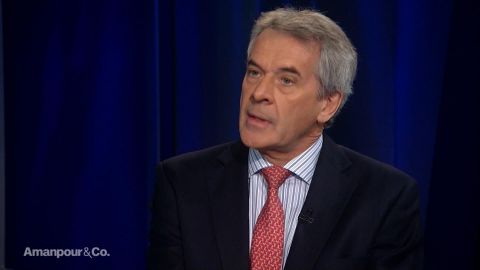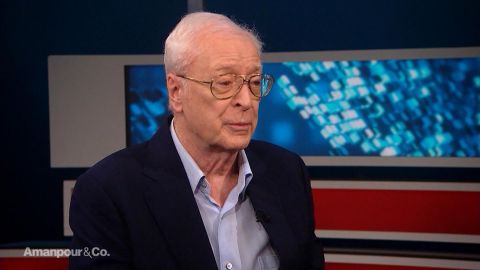Read Transcript EXPAND
AMANPOUR: So, then let me ask you what you thought when you first heard that Jamal Khashoggi had been killed and then that it was most likely directed from the highest heights of Saudi Arabia, again, in Turkey, where you used to be ambassador. I mean, many of us as journalists took that as a very chilling effect, again, from the kind of speech that’s directed to us by the president of the United States and emulated now, by authoritarians, dictators, kings, crown princes.
WESTMACOTT: Well, my first reaction was one of incredulity. This was like a bad novel. If somebody given a script like that they would say, “This is not credible. You know, we’re not going to publish your story.” But then, the more we saw, the stuff that the Turks were leaking, drip, drip, but without ever putting the evidence out there, the more I thought, “Dear God, this looks like it is true.” And clearly, there has been very close cooperation between the Turkish Intelligence Organization and the agencies in the Western countries and indeed, briefing of the United States senators and other people. People do seem to be convinced that it is as described, so horrendous.
AMANPOUR: So, you talked about the evidence. The CIA Director, Gina Haspel has listened to the tape that the Turks have, that’s the news today, it’s a scoop by the “Washington Post” and she’s briefed the president. If it does turn out to be the horrible, gruesome death that the Turkish authorities say it was, where does that put the ball? In whose court?
WESTMACOTT: I think it puts a lot of questions to the White House, I think it places a certain responsibility on the shoulders of President Erdogan who actually has played his cards, I think so far with considerable skill. Though I do think at some point he’s going to have to put the evidence out there but maybe that’s begun as you say by explaining to the CIA what’s been going on. And it makes a lot of people in Saudi Arabia where Mohammed bin Salman has made a lot of enemies over the couple of years in which he has been top dog. It puts him, I think, in a weakened position. I think he has alienated a lot of the Arab world. He’s alienated a lot of people inside Saudi Arabia. He has managed to captivate a number of Middle Eastern commentator who thought, “Well, let’s give him the benefit of the doubt or at least encourage him because Saudi Arabia does need reform.” But there were always doubts about some of his more impulsive, if not irresponsible foreign policy, starting a war in Yemen, kidnapping the Lebanese foreign minister, almost starting a war with Canada and all those different activities, people rub their eyes with disbelief. So, I think what’s going on is that the Saudis and perhaps Mohammed bin Salman himself have authorized a brutal murder of the sort, which sometimes happen in Saudi Arabia but which has captured our imagination and our horror because it is on diplomatic premises in a friendly country not very far away.
About This Episode EXPAND
Christiane Amanpour speaks with Peter Westmacott, former UK Ambassador to Turkey and the U.S., about relations with Saudi Arabia and Juliette Kayyem, former Asst. Secy. of Homeland Security, about domestic terrorism. Alicia Menendez speaks with Patricia Mazzei of The New York Times and Politico reporter Marc Caputo about the midterms. Christiane Amanpour speaks with legendary actor Michael Caine.
LEARN MORE



